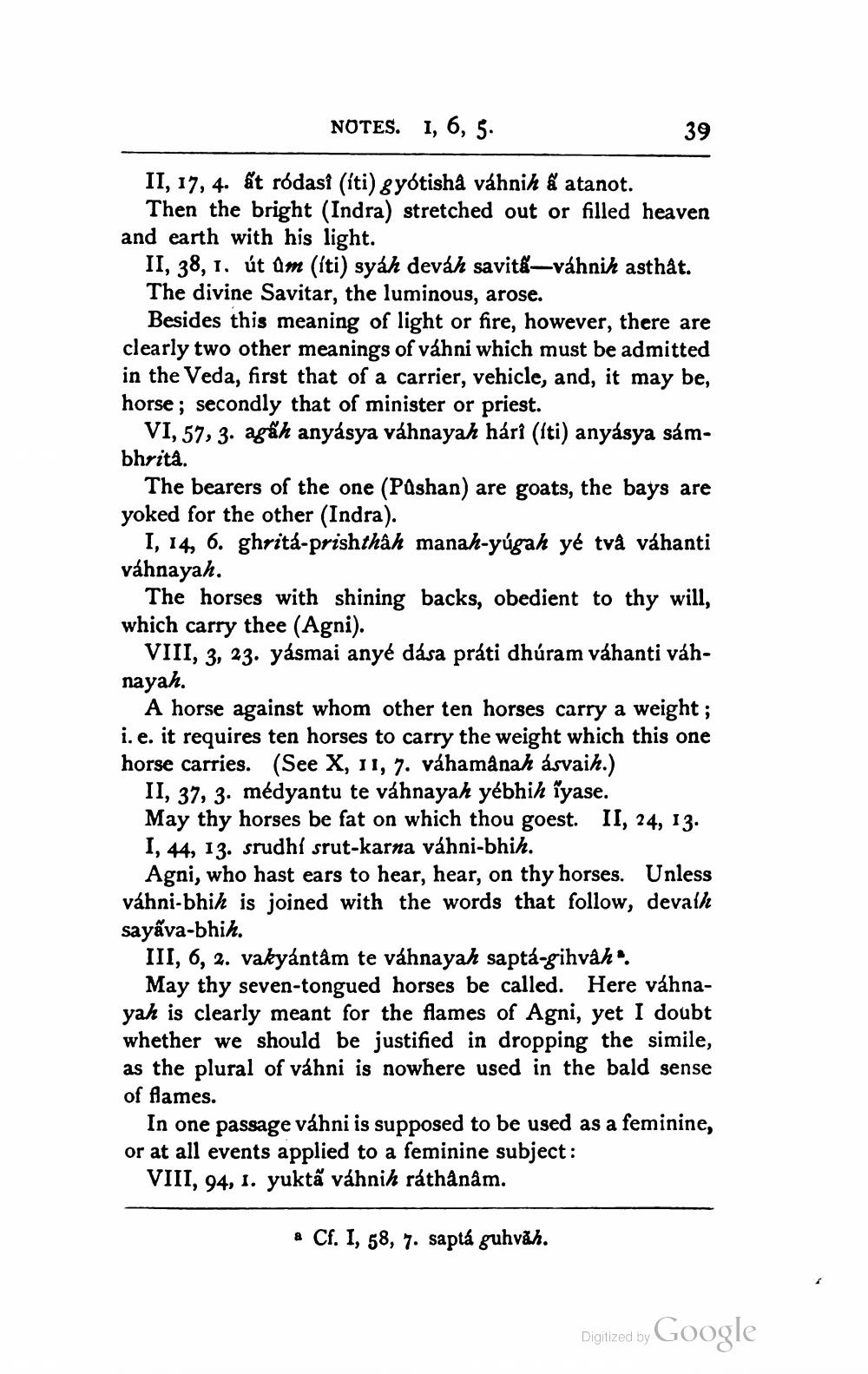________________
NOTES. 1, 6, 5.
39
II, 17, 4. at rodasi (íti) gyótishå váhnih å atanot.
Then the bright (Indra) stretched out or filled heaven and earth with his light.
II, 38, 1. út um (íti) syah deváh savit&-vahnih asthåt. The divine Savitar, the luminous, arose.
Besides this meaning of light or fire, however, there are clearly two other meanings of váhni which must be admitted in the Veda, first that of a carrier, vehicle, and, it may be, horse; secondly that of minister or priest.
VI, 57, 3. agáh anyásya váhnayah hári (íti) anyásya sámbhrità.
The bearers of the one (Pashan) are goats, the bays are yoked for the other (Indra).
I, 14, 6. ghritá-prishthâh manah-yúgah yé två váhanti vahnayah.
The horses with shining backs, obedient to thy will, which carry thee (Agni).
VIII, 3, 23. yásmai anyé dása práti dhúram váhanti váhnayah.
A horse against whom other ten horses carry a weight; i.e. it requires ten horses to carry the weight which this one horse carries. (See X, 11, 7. váhamânah ásvaih.)
II, 37, 3. médyantu te váhnayah yébhih îyase. May thy horses be fat on which thou goest. II, 24, 13. I, 44, 13. srudhi srut-karna váhni-bhih.
Agni, who hast ears to hear, hear, on thy horses. Unless váhni-bhih is joined with the words that follow, devalh sayáva-bhih.
III, 6, 2. vakyántâm te váhnayah sapta-gihvah. May thy seven-tongued horses be called. Here vahnayah is clearly meant for the flames of Agni, yet I doubt whether we should be justified in dropping the simile, as the plural of váhni is nowhere used in the bald sense of flames.
In one passage váhni is supposed to be used as a feminine, or at all events applied to a feminine subject:
VIII, 94, 1. yuktã váhnih ráthânám.
a Cf. I, 58, 7. saptá guhvah.
Digized by Google




